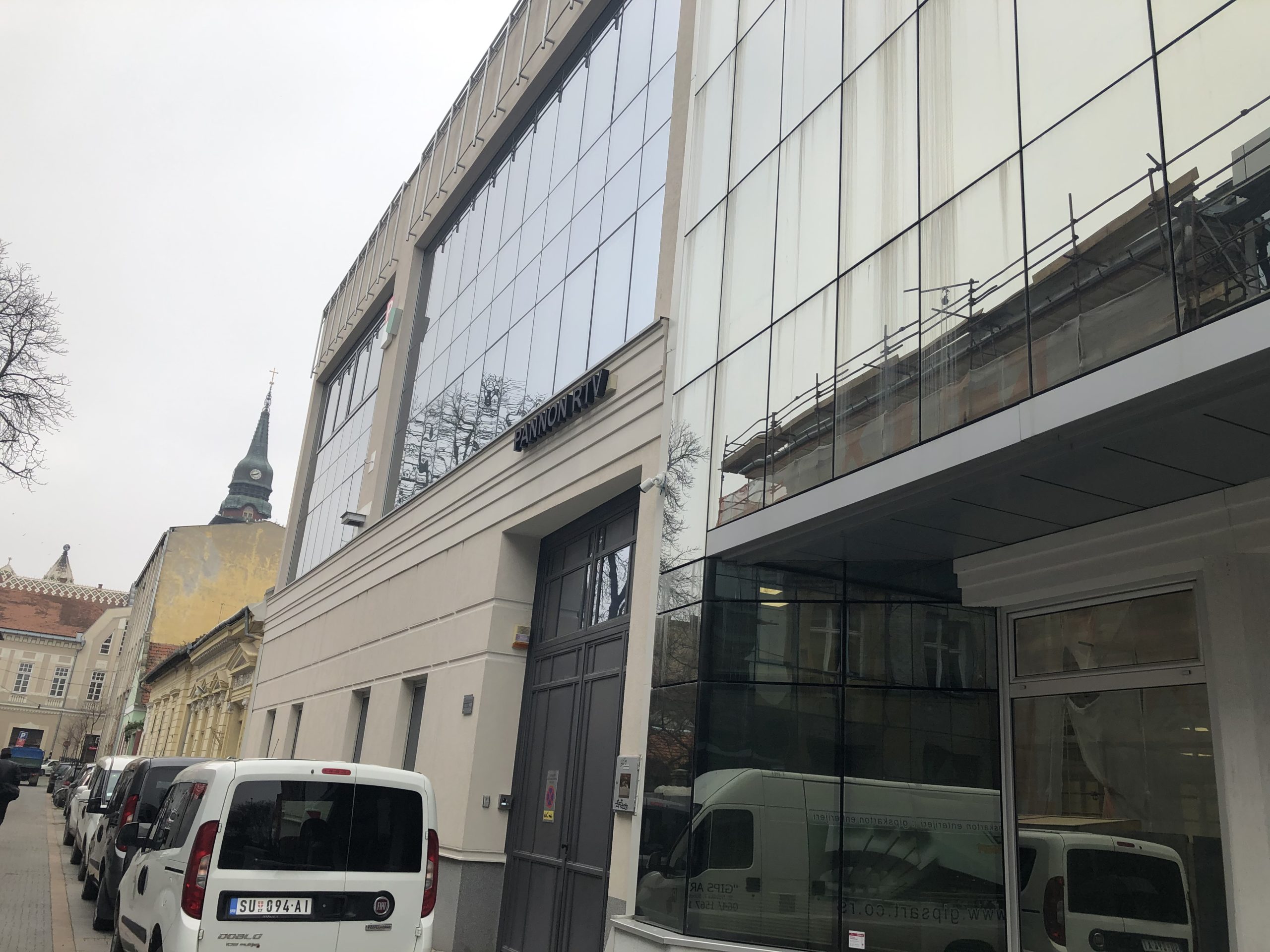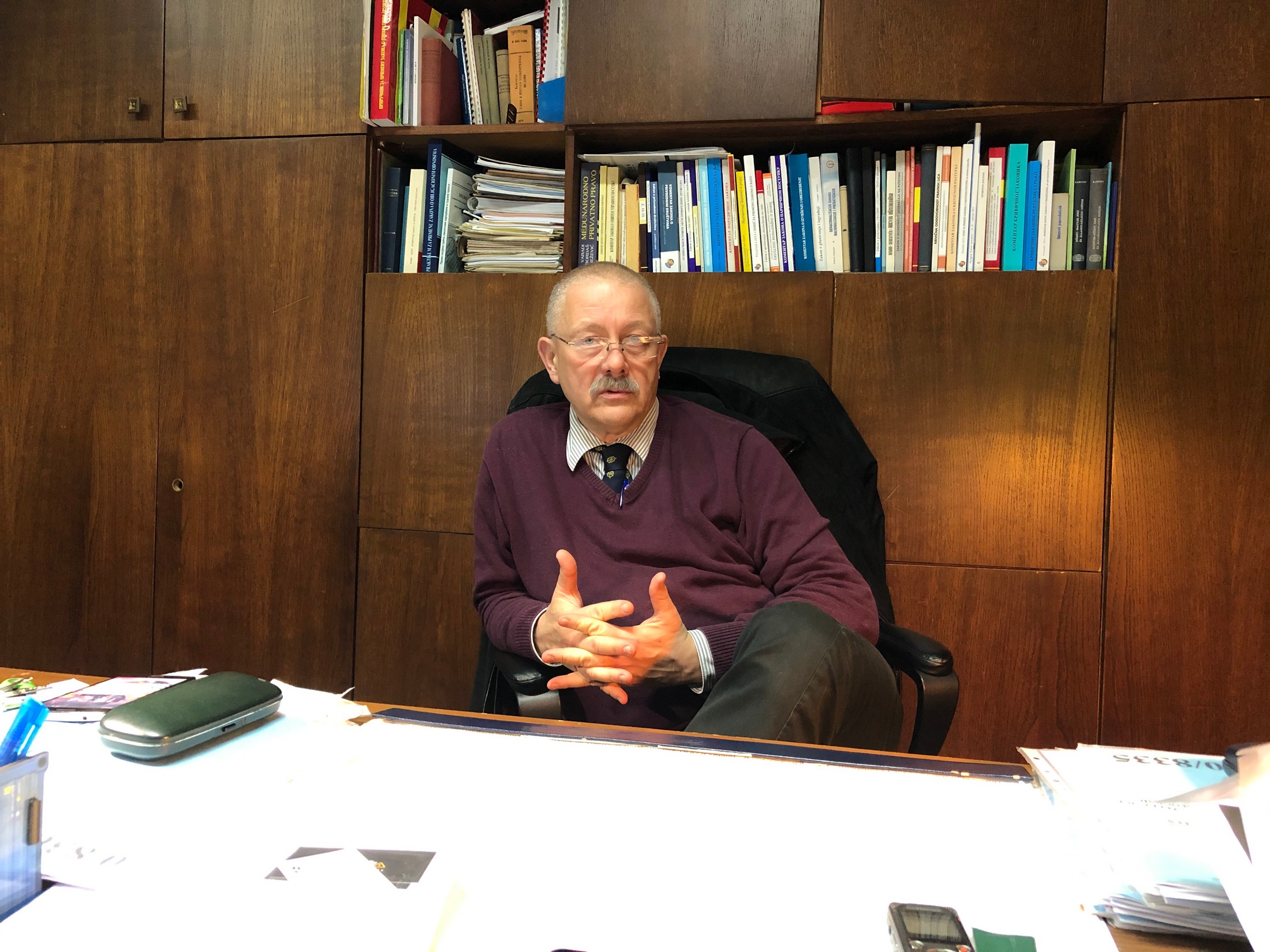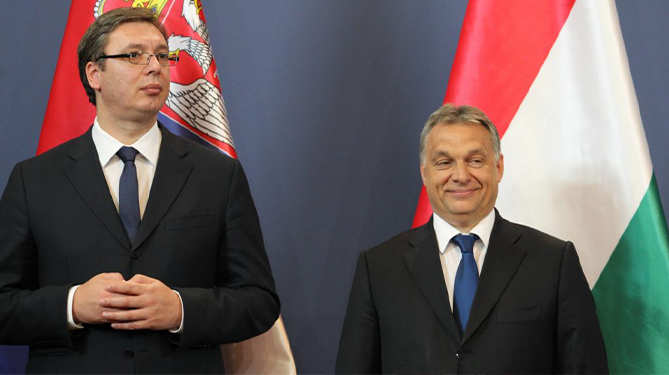Orban’s “Purchase” of Influence in Serbia Through Vojvodina’s Media
Orban’s “Purchase” of Influence in Serbia Through Vojvodina’s Media
Hungarian citizens paid around 12 million euros for the work of Hungarian media in Serbia from 2011 until the end of 2019. CINS investigation shows that the neighboring country financed information content, current expenses, and the purchase of real estate by media that show sympathy with Fidesz, the party of the Prime Minister of Hungary, Viktor Orban, in terms of content and ownership. Experts say this was a purchase of influence in Serbia. CINS also reveals the reason of the oldest Hungarian newspaper’s editor-in-chief dismissal, and why the votes of Vojvodina Hungarians are important for the result in the European parliament elections.
Near the border with Hungary, in the northern Serbian city of Subotica (Szabadka), the largest Hungarian media company in Serbia is based – RTV Pannon. Foundation, under which auspices two radio stations, portal and television operate, hires 129 employees. For the last 15 years RTV Pannon reports in Hungarian and Serbian language.
For this media company, consisting of TV Pannon, Pannon radio, Hungarian radio in Subotica (Szabadkai Magyar Rádió) and portal PanonRTV, from 2011 until the end of 2019, the Government of Hungary through the state Bethlen Gabor Foundation (Bethlen Gábor Alapkezelő Zrt.) paid over 9 million euros, almost half of it in 2019 alone. In addition, the Foundation has allocated (2011-2021) at least 3.5 million euros, but it is not known whether they have been paid. (Read more HERE.)

Pannon RTV (left) and Media House (right); photo: CINS
That way, RTV Pannon won the majority of about 12 million euros that all Hungarian media registered in Serbia received for the informative content, work and development costs, purchase of real estate and media outlets. People Center for Investigative Journalism of Serbia (CINS) spoke to say that, during the time, media represent the interests of the Hungarian government, promote Hungarian Prime Minister Viktor Orban (Orbán Viktor) and his political party Fidesz thus spread their influence in Serbia.
“They would make up that hundreds of migrants gathered in North Banat and are just waiting to break through the fence. Then we go there and it turns out that instead of those hundreds, we are talking about only 40-50 migrants who are mostly peaceful. In those cases, they ask to report that there are 400 of them, regardless of the fact that we cannot prove it with video footage. It also happened that they made up in Budapest that migrants broke into and robbed houses and attacked old people who live there. On the spot it turns out that it is not exactly like that, they only entered one empty house, and the robbery comes down to removing the old floor and lighting a fire because it was 10 degrees,” says the employee of RTV Pannon who wanted to stay anonymous.
RTV employee adds that “orders” to Pannon for such reporting and media manipulations also go through the Hungarian public service MTVA (Médiaszolgáltatás-támogató és Vagyonkezelő Alap), and is later used for the first program of the Hungarian public service M1. However, not everyone is willing to comply with the demands, but a small number of journalists do so.
When asked about this RTV Pannon director Ištvan Bodžoni (Bodzsóni István) said he is not the one communicating with MTVA, but claims RTV has an independent program policy:
“We work objectively, about what is really going on.”
RTV Pannon also received equipment and money for the production of the program from MTVA, 81,912 euros in 2013 and 2015. Bodžoni says they have good business cooperation but refused to talk about it further because of “trade secrets”.
Norbert Šinković, president of the Independent Journalists’ Association of Vojvodina (NDNV) thinks it is clear that non-transparent media financing through various foundations opens the possibility of political influence:
“It is very clear that the programs of these foundations and media such as Pannonia, is dominated primarily by messages that support the work of the SVM (ethnic Hungarian political party in Serbia) and Viktor Orban’s Government in the region. It is very clear that Fidesz relies on those media during a campaign in Hungary.”
Beside the money from Budapest, Panonija foundation also won Serbian competitions for co-financing media content of public interest. From 2015 to date, according to the Journalists’ Association of Serbia (UNS) database, at 31 provincial and local competitions Panonija received around 302,000 euros, mainly for reporting of Vojvodina municipalities, but also for the development of informative programs in Hungarian.
Over 1.7 billion euros for Hungarians through the Bethlen Gabor Foundation
This story was written in collaboration with colleagues from Slovenia, Croatia, Slovakia and Romania, as part of the international project HUNGARIAN MONEY, ORBAN’S CONTROL. Our countries, along with Ukraine, received largest number of donations from the Bethlen Gabor Foundation.
The Foundation was founded in 2011, a year after Viktor Orban became the Prime Minister of Hungary. The mission of this foundation, as written on its website, is to achieve goals related to the national political strategy of the Hungarian government.
“Its main task is to promote subsidies in order to improve the prosperity of individuals and the community, the material and intellectual prosperity of Hungarians living abroad and the preservation of their culture,” it is stated on the Foundation’s website.
In the last 10 years, the Foundation approved grants to churches, educational and cultural institutions, scouts, media outlets and individuals in 46 countries in the amount of at least 1.7 billion euros. Due to the way the Foundation publishes the data, we do not know exactly how much money the Foundation paid. More in the article HERE.
National Council – tool for spreading influence and control of the media in Serbia
RTV Pannon does not keep cooperation with the Hungarian Government as a secret. On the media’s website the Government’s coat of arms and logo of Bethlen Gabor Foundation can be found. The Hungarian Government not only financed the news program of this media, but also invested in its expansion, purchase of real estate, as well as for investment works.
In addition to Pannon, Bethlen Gabor money went to the oldest Serbian daily newspaper in Hungarian, Magyar Szo (Magyar Szó), the oldest weekly Het Nap (Hét Nap), and Express TV and radio (URKO), portal Vajdsag Ma (Vajdaság Ma), and another two dozen media. At least 36,000 euros was paid to journalists’ associations.
Payments through the Hungarian Foundation are not the only thing connecting Magyar Szo, Het Nap and RTV Pannon. Namely, newsrooms of Het Nap, Magyar Szo’s correspondence and Pannon’s Hungarian radio in Subotica, are based under the same roof, in the so-called Media house. Other Pannonian newsrooms work next door. More importantly, they are founded and managed by the National Council of the Hungarian Ethnic Minority.
The Council, which deals with the interests of the Hungarian national minority in Serbia, has 35 members, 16 of whom are members of the political party Alliance of Vojvodina Hungarians, ethnic Hungarian political party (SVM), and shares premises in the center of Subotica with this party.
SVM is in a coalition with the ruling Serbian Progressive Party (SNS), but at the same time it is the “sister” party of Fidesz, the right-wing party of Viktor Orban. The current president of the Assembly of the Autonomous Province of Vojvodina, Ištvan Pastor (Pásztor István), is the head of SVM.
At the beginning of December 2020, the director of the Magyar Szo, Rozalia Ekres (Ökrész Rozália), became a member of the National Assembly of the Republic of Serbia. The electoral list of the ethnic Hungarian political party – Ištvan Pastor holds nine seats in the National Assembly.
According to the Serbian Journalists’ Code of Ethics, work in the media and political parties or state bodies is incompatible. It is said that one cannot engage in journalistic work, if he or she participates in a political or election campaign.
SVM is also advertised through Magyar Szo, so, according to the Anti-Corruption Agency’s annual financial reports, from 2016 to 2020, the media received more than 13,000 euros.
None of the three media, Magyar Szo, Het Nap and RTV Pannon, is critical of Orban, SVM and its founder, the Council, but often convey statements of these institutions.
Thus, citizens who follow the programs of RTV Pannon, can find out that Prime Minister Viktor Orban got his fifth grandson, got vaccinated against the flu, but also read a report on Orban’s modesty, seen in the poetic description of him barefoot carrying bread under his arm while vacationing on Adriatic.
Data source: Serbian Business Registers Agency
In the 2018 Hungarian parliamentary election campaign, Magyar Szo portrayed the opposition as a group of people whose only goal was to overthrow Orban and seize power. In addition, they transmitted Pastor’s statements that citizens should vote for a coalition led by Orban’s party.
Norbert Šinković, the president of NDNV, who’s been following the work of the Hungarian media and points out their reporting before the elections was biased:
“That narrative is also present in Hungary, in relation to the division of ‘we’ and ‘they’, ‘this side’, ‘that side’, and it appears both in Magyar Szo and in other media. That is the story we see. The kind of neutrality, or the kind of balance that is required during a campaign, simply, according to my estimate, was not present in Magyar Szo.”
Dragan Đukanović, associate professor at the Faculty of Political Sciences in Belgrade and director of the Center for Foreign Policy, believes that the result in the last elections for the European Parliament was also influenced in Vojvodina.
“When Hungarians, or those who have Hungarian citizenship, voted in Serbia, there was a clear campaign to support Orban and his option in the elections (…) and to increase the participation of the number of deputies from his party in the European Parliament,” Đukanović explains.
Šinković agrees with this and adds that “every vote is important”. The media in Vojvodina actively followed the Fidesz campaign in Vojvodina, in connection with the European Parliament elections, he says.
In addition to the fact that Hungarian government controls the editorial policy of these media shows the case of the former editor-in-chief of Magyar Szo, Čaba Presburger (Pressburger Csaba), who got fired in 2011. The reason was that SVM blamed him for their failure in the elections, because he gave equal space to all parties, instead of favoring Pastor’s party.
“I did not want to make a party bulletin. (…) We didn’t ‘report adequately on certain events of SVM’,” Presburger said to CINS.
“In Magyar Szo you cannot read any critical views. (…) It got worse from 2011 and today one cannot really write anything against Orban, not even against Vučić (Serbian president Aleksandar Vučić). For some time the government in Serbia could have been criticized at least, but not even that anymore,” he explains.
Presburger adds that while he was editor of Magyar Szo, media control went through journalists who communicated with politicians.
“They (political structures) had their journalists in Magyar Szo, who immediately, as soon as they called them, immediately went to do an interview or a report, so I was in trouble. I simply had to introduce some restrictions that we should no longer publish meaningless interviews.”
Purchase of media from Hungarian citizens’ forints
The announcement for the sale of the state public information company Bačka Topola (Topolya) was published in 2015. The only interested buyer was the Association for Regional Communication (URKO). The price was slightly higher than 31,000 euros, and for that money, URKO got a television and radio station.
CINS reveals that purchase money came from Hungary. Bethlen Gabor Foundation paid 64,600 euros for this purpose in 2015. Since then URKO, i.e. its daughter company Information Center Bačka Topola is the owner of the Express Channel and the local radio station Radio regije.
Since 2017, the Hungarian Government spare each year 7,000,000 hungarian forints, the equivalent of around 20,000 euros for URKO to cover the costs of maintaining the television.
Director of the Information Center Bačka Topola, Kornelia Mirić Namestovski (Mirić Námesztovszki Kornélia), was on the SVM list in 2020 parliamentary elections.
With colleagues from Magyar Szo and the Het Nap, Presburger protested in 2016 because of the pressures they felt SVM performed on the media through the Council. Namely, the Council wanted to prevent the newsroom members from participating in the selection of editors-in-chief in the media it founded.

Laslo Joža; photo: CINS
The protest failed, and Council adopted a new Statute, according to which only they elect the editorial board, without asking for journalists’ opinion.
Subotica lawyer Laslo Joža (László Józsa) was the first president of the National Council, from 2002 to June 2010, and SVM official until 2015. He told CINS that he was the initiator of the Presburger removal. As he says, Presburger refused to cooperate on “one completely banal thing”.
“We were supposed to organize a rally on the position of the media and I invited him to help me organize it together and he said ‘no’, he is an independent person. Maybe I was wrong, but I understood it as non-cooperation that is not related to editorial policy, but I have to admit the SVM presidency agreed with me.”
Through his work on the draft law on national minorities, he supported the idea of the National Council establishing media, believing that it was better for “the elected representative body of the Hungarian community to be the owner of at the time our most serious media.” The motive was that in the 1990s, when Magyar Szo and Het Nap were in Serbian ownership, the regime of Slobodan Milošević, the then president of Yugoslavia, dictated editorial policy.
“Later, I realised that political ambitions that govern the National Council mean that there will be political influence. During those 8 years while I was there, party influence was not realized in Magyar Szo,” Joža claims.
In 2014, the Constitutional Court assessed the practice of national councils taking over ownership of the media unconstitutional. However, the media that were in the “hands” of the national councils at that time, remained there, the court decided.
In its answer to CINS, National council denied any control over the media content, which is, as said, solely the responsibility of the editors-in-chief. Instead, Council claims to gives consent to the work plan and financial plan of the institutions, as well as to their program and financial reports.
Money from Bethlen Gabor Foundation has nothing to do with editorial policy as well:
“The Hungarian government never conditions funds from the Bethlen Gabor Fund in this way, but only transparently, in accordance with the conditions of the law on the budget system of Hungary.”
Hungary rewarded RTV Pannon
In August 2019, RTV Pannon director Bodžoni received a Hungarian state prize called Officer’s Cross (Magyar Èrdemrend tisztikeresztje) for the development of this media company. The award was presented in Budapest by Žolt Šemjen (Semjén Zsolt), Deputy Prime Minister. The same day a new recognition came from Budapest – the award Zoltan Kaloš (Kallós Zoltán) for Hungarians living abroad, for credible reporting in the native language of Vojvodina Hungarians, and necessary and important reporting during the migrant crisis, strengthening the Hungarian-Serbian relations and communication activities between parts of nations.
The investigation was done with the help of Virag Đurković (Virág Gyurkovics).
The production of this investigation was supported by a grant from the Investigative Journalism for Europe (IJ4EU) fund.

Stefan Marković joined the CINS investigative team in February 2020. As an investigative journalist, Stefan previously worked at Južne Vesti, and was nominated several times for the national investigative journalism award. He holds a Transparency International School on Integrity certificate. Aside from numerous stories, he also worked on creating CINS’ large database of MPs’ expenses.
READ MORE


